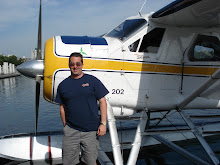S/Ldr Robert Kronfeld AFC 1904-1948

Robert Kronfeld was an Austrian gliding champion and sailplane designer of the 1920s and 30s.He became a British subject and an RAF test pilot. He was killed testing a glider in 1948.
As a young man, he visited the Wasserkuppe in Germany and became passionate about the sport of gliding that was developing there. So Kronfeld became a member of the first Austrian gliding school.He befriended Walter Georgii, who was a meteorologist working at the nearby Darmstadt University of Technology and who had recently discovered thermals. Kronfeld became something of a test-pilot for Georgii, investigating this still-new phenomenon with the assistance of a variometer disguised as a vacuum flask.
In 1926, the German newspaper Grüne Post offered a DM 5,000 prize for the first glider pilot to fly 100 km (62.5 miles). Kronfeld took up the challenge in 1929 and selected a long chain of hills, the Teutoburger Wald as a promising site for the record attempt.
He took off in a glider of his own design, named Wien ("Vienna"), launched by bungee, near Ibbenbüren. After a flight lasting over five hours, he landed near Detmold, 102.5 km away. Kronfeld used the prize money to build a gigantic sailplane, named Austria, which had a wingspan of 30 metres - a record not to be matched until the end of the twentieth century. Kronfeld was the first winner of the Hindenburg-trophy in 1929.In the same year he undertook the first flight from a mountain in Lower Austria.He also staged large air shows.By 1930 he held the world records for distance (164 km) and height (2,589 m).
In 1930 he also had success gliding in England.On February 15, 1931 Robert Kronfeld and Wolf Hirth were the first men awarded with the "Silver C".On June 20, 1931 Kronfeld was the first pilot to fly a glider across the English Channel, making a return flight the same day.For this he won £1000 from the Daily Mail.
Kronfeld was an Air Scout within the Österreichischer Pfadfinderbund and took part in the 4th World Scout Jamboree (1933) in Hungary as a member of the Austrian contingent.He participated in the Air Scout camp and contributed to the Airshow.He served as Commissioner for Air Scouts of the Österreichischer Pfadfinderbund. Kronfeld also was an honorary member of this Scout association.
In 1933, the new Nazi government prohibited Jews from flying, and as a Jew, Kronfeld fled Germany first for Austria, later for the United Kingdom.In 1934 he was awarded with the Silver medal of the Lilienthal Society.There, he continued flying, taking over the British Aircraft Company, and in 1938 became chief instructor for the newly-founded Oxford University and City Gliding Club. He settled in England in January 1938 and his father followed him to England in 1939.
Kronfeld was a member of the Österreichischer Aero Club and brought the records of this association to the United Kingdom.
In 1939 he became a British citizen and during World War II he served in the Royal Air Force.He held the rank of Squadron Leader.He was posted to the Airborne Forces Experimental Establishment on military glider development. For that work he was awarded the Air Force Cross.
Post war, as Chief Test Pilot for General Aircraft, he was killed in the crash of an experimental flying wing glider - the General Aircraft GAL 56 (TS507) - during stalling trials, at Lower Froyle after taking-off from Lasham Airfield.After successfully recovering from a stall, the aircraft entered an inverted dive. His observer was able to leave the aircraft and survived despite a low level parachute opening.






<< Home